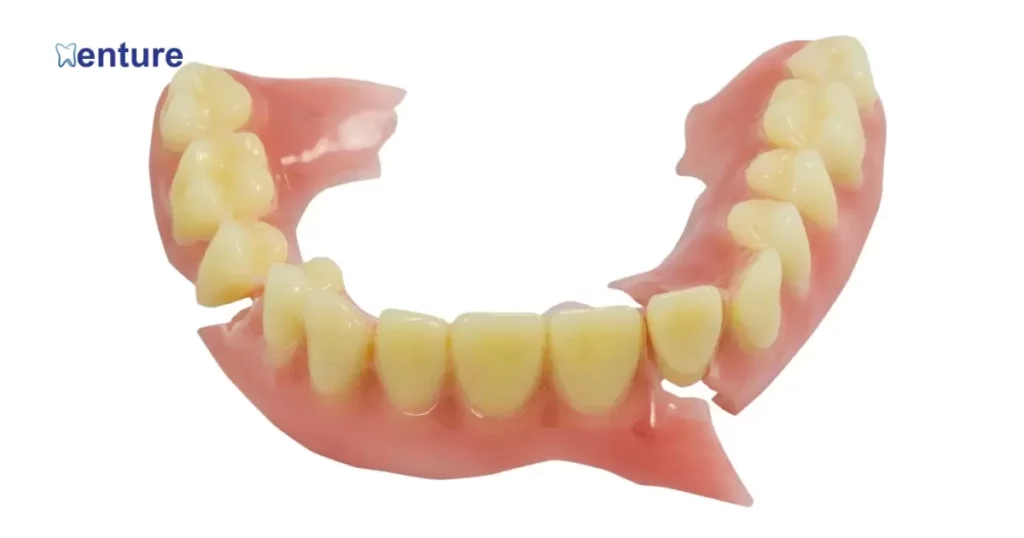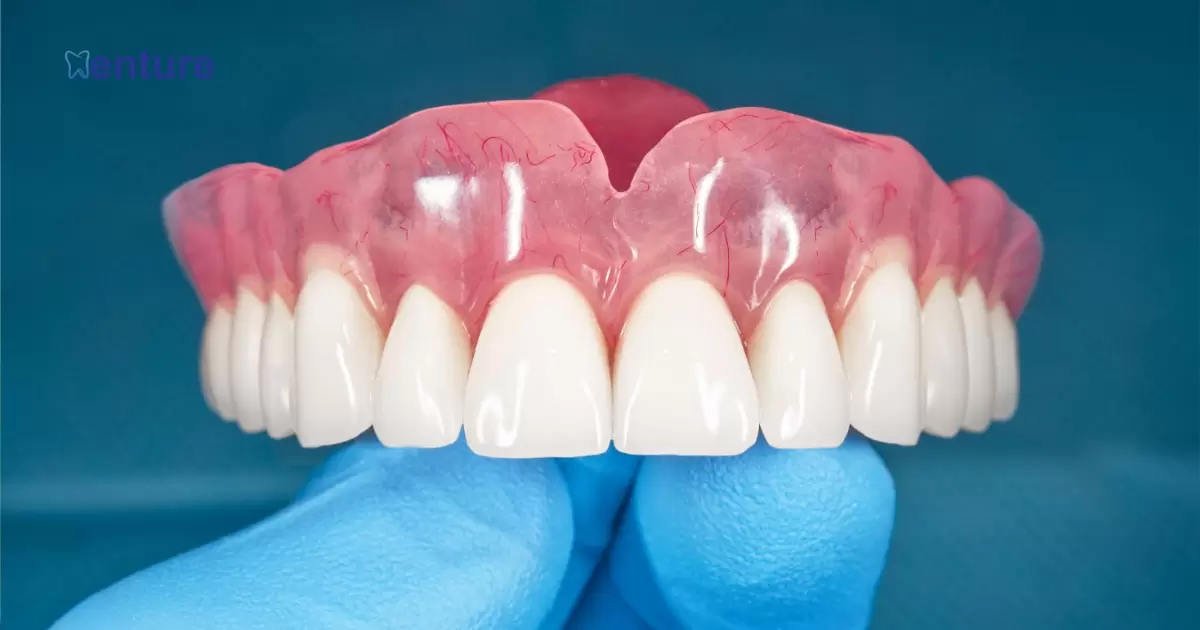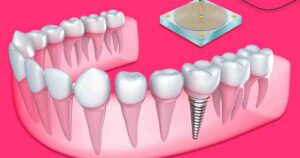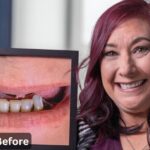Dentures are removable tooth replacements. They help people who’ve lost their natural teeth. Dentures come in full and partial forms. Full dentures replace all teeth, while partials replace some missing teeth. They’re custom-made to fit comfortably in your mouth, giving you a natural smile.
Wondering how often you should get new dentures? Dentures are an essential solution for those missing teeth. Over time, they wear down and don’t fit as well. Regular check-ups with your dentist can help you know when it’s time for fresh dentures.
Regular dental checkups are crucial. Your dentist can assess your dentures and help you determine when it’s time for a replacement. New dentures provide better fit and comfort, ensuring a more confident smile. So, don’t hesitate to schedule those check-ups and keep your oral health in top shape.
How Often Do You Need To Replace Your Dentures?
Dentures typically last 5–10 years. The lifespan varies based on factors like wear and changes in your mouth. Regular dental visits are essential. Your dentist can check your dentures and recommend replacements when necessary. This ensures your smile remains comfortable and confident.
The frequency of denture replacement varies for each person. Factors like wear, diet, and oral changes play a role. Most people get new dentures every 5–10 years, but it’s vital to consult your dentist. They’ll assess your specific needs and help you determine when it’s time for a fresh, comfortable set of dentures.
| Sign | Indication That It’s Time for New Dentures |
| Dentures feel loose | Loose dentures can cause discomfort and affect your confidence. Regular dental visits help detect when your dentures need adjustments or replacement. |
| Changes in facial appearance | Over time, dentures can lead to changes in your facial appearance, often due to bone loss in the jaw. Properly fitting dentures can help maintain your facial structure. |
| Discoloration or damage to dentures | Stains, chips, or cracks can affect the appearance and functionality of dentures. Regular cleaning and maintenance can help prevent this. |
| Irritated gums | Gum irritation can result from poor oral hygiene or ill-fitting dentures. Proper care and professional guidance can prevent this issue. |
| Broken and cracked dentures | Accidents can lead to broken or cracked dentures, which can be fixed by your dentist. Handling dentures with care is essential. |
They Feel Loose Or Fall Out
Veneers for dentures can spruce up your smile and give you that extra boost of confidence. These thin shells, carefully crafted over a long to make dentures, make your dentures look more natural and attractive. It’s like a facelift for your teeth, enhancing your overall appearance.
Wearing dentures that don’t fit properly can be frustrating. They may slip or fall out, making everyday activities challenging. This is a common issue, but it’s fixable. Dentists can adjust or replace your dentures to ensure a snug fit.
Changes In Your Facial Appearance
Over time, dentures can lead to changes in your facial appearance. These changes often result from bone loss in the jaw due to missing teeth. Your face may appear sunken or older when dentures don’t provide proper support.
New dentures can make a significant difference. They’re designed to fit well and offer the support your facial structure needs. When you have dentures that fit properly, you’ll not only regain a natural smile but also maintain a more youthful appearance.
Discoloration Or Damage To Dentures
Discoloration or damage to dentures is not uncommon. Stains from foods and drinks can affect their appearance. Proper cleaning can help prevent this. However, if you notice any chips or cracks, it’s crucial to see your dentist for repairs or replacement.
Preventive care matters. To avoid discoloration, clean your dentures regularly using a soft brush and mild soap. Storing them properly when not in use can also help maintain their quality. Remember, maintaining your dentures ensures a confident and vibrant smile.
Irritated Gums
Irritated gums can be uncomfortable. They may result from various factors, like poor oral hygiene or dentures that don’t fit well. Regular brushing and flossing can help prevent gum irritation. If you wear dentures, ensure they fit properly to avoid this issue.
When gum irritation persists, see your dentist. They can identify the cause and recommend the right treatment. Good oral care and professional guidance can keep your gums healthy and free from irritation. Your smile will thank you!
Broken And Cracked Dentures

Accidents happen. If you’ve got broken or cracked dentures, don’t worry. Your dentist can fix them, restoring your smile’s comfort and appearance. Just reach out to your dental professional for a quick solution.
Handle your dentures with care to avoid damage. Keep them clean and store them properly. This way, you can minimize the risk of experiencing broken or cracked dentures in the first place.
Denture Maintenance and Upkeep
Proper denture maintenance is essential. To keep your dentures in good shape, clean them daily with a soft brush and mild soap. Avoid hot water, which can distort them. Regular care extends their lifespan.
Don’t forget to remove and rinse your dentures after eating. This helps prevent food particles and bacteria buildup. Keep them in a denture-cleaning solution overnight, and they’ll be ready to brighten your smile in the morning.
Daily Denture Care
Daily denture care is essential. Rinse them after eating to remove food particles. Brush gently with a denture brush and mild soap. Soak them overnight in a denture-cleaning solution. Your daily routine keeps your dentures clean and your smile bright.
Good Hygiene Habits
Maintaining good hygiene habits is vital. Regularly brush your teeth and floss to keep your smile healthy.It’s also important to replace your dentures when needed, and your dentist can help you with that. Good hygiene ensures a confident and radiant smile.
Avoid Harmful Chemicals
Protecting your dentures is essential. To ensure their longevity, avoid harmful chemicals. Steer clear of abrasive toothpaste, which can scratch them. Stick to gentle cleaning solutions recommended by your dentist for a sparkling and safe smile.
Never Perform Self-Adjustments
One important thing to remember is never to perform self-adjustments on your dentures. While it might be tempting to tweak them yourself, it can lead to problems. Dentures need professional care and adjustments from your dentist to ensure they work correctly and comfortably. So, leave the adjustments to the experts.
Storing Dentures
Properly storing dentures matters. When you’re not wearing them, keep them in a denture box filled with clean water. This prevents them from drying out and losing their shape. Regular care ensures your dentures stay in top condition for your confident smile.
Visit the Dentist Regularly
Regular visits to the dentist are crucial. They help maintain good oral health and catch any issues early. Dentists can also advise on proper denture care, ensuring their longevity. So, make those appointments and keep your smile shining bright!
FAQ’s
What signs indicate it’s time for new dentures?
If your dentures become loose, worn, or cause discomfort, it’s time for a replacement.
Can I extend the life of my dentures?
Yes, with proper care and regular check-ups, you can prolong the life of your dentures.
Do partial dentures need replacing as often?
Partial dentures may last longer, but regular check-ups are still essential.
Conclusion
Visiting your dentist regularly is key to maintaining oral health. These check-ups help determine when it’s time for new dentures. Should You Get New Dentures? Dentures usually last 5-7 years, but if they become loose or uncomfortable, replacements are necessary.
Both full and partial dentures require attention, and proper care can extend their lifespan. So, don’t hesitate to schedule those crucial dental appointments, ensuring your confident, radiant smile for years to come.











